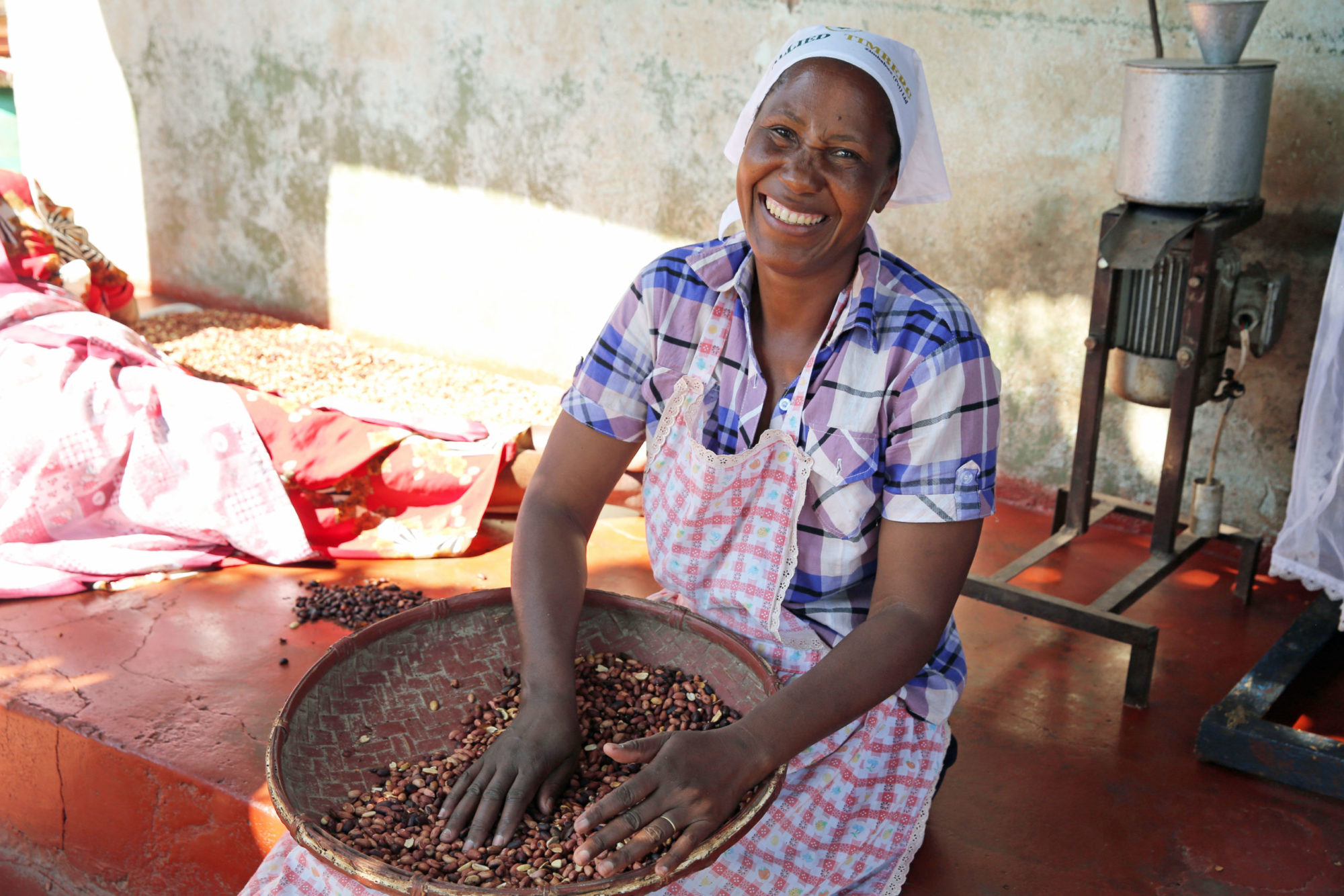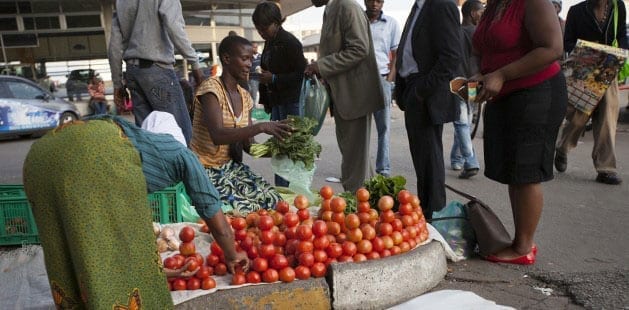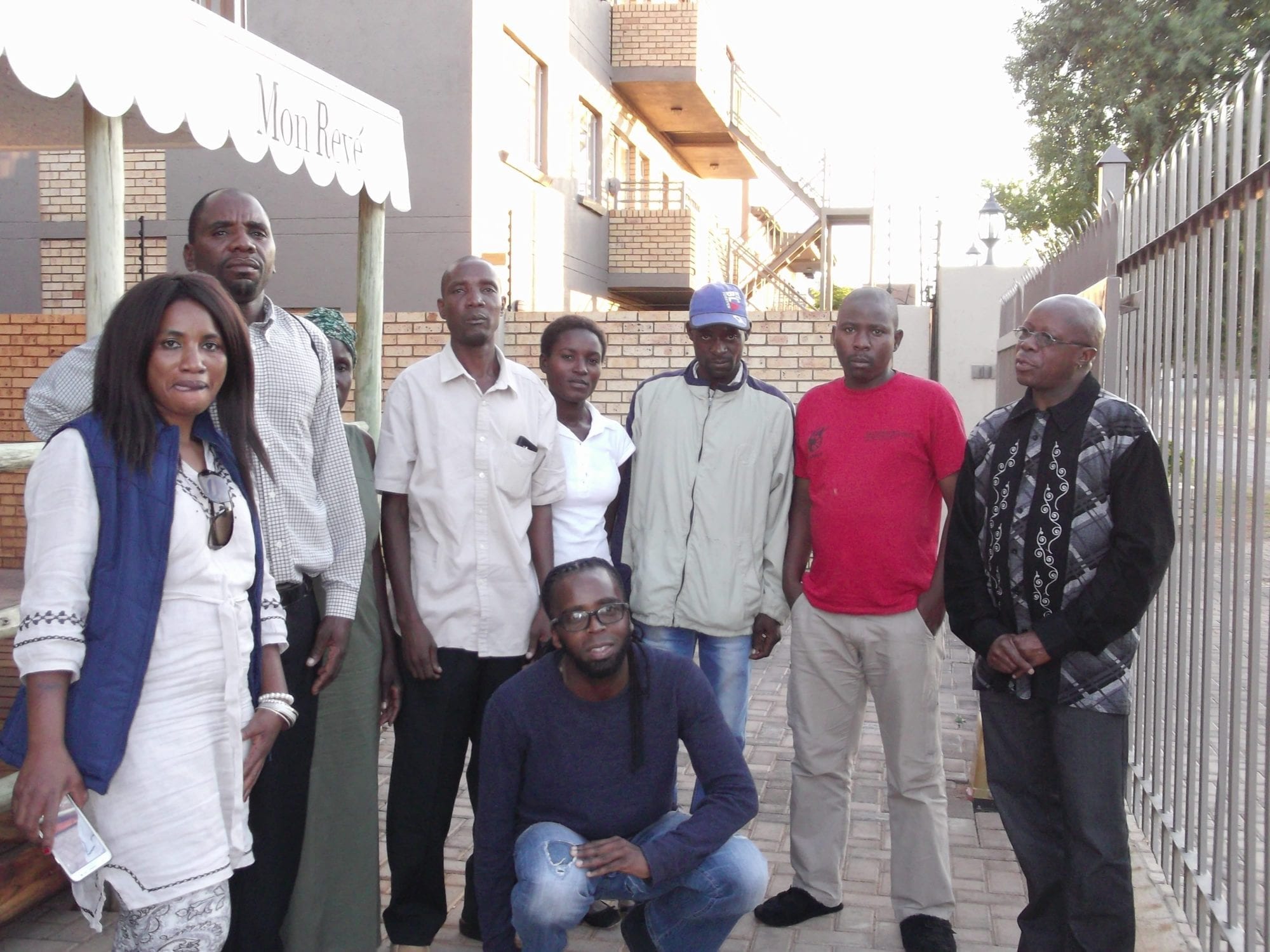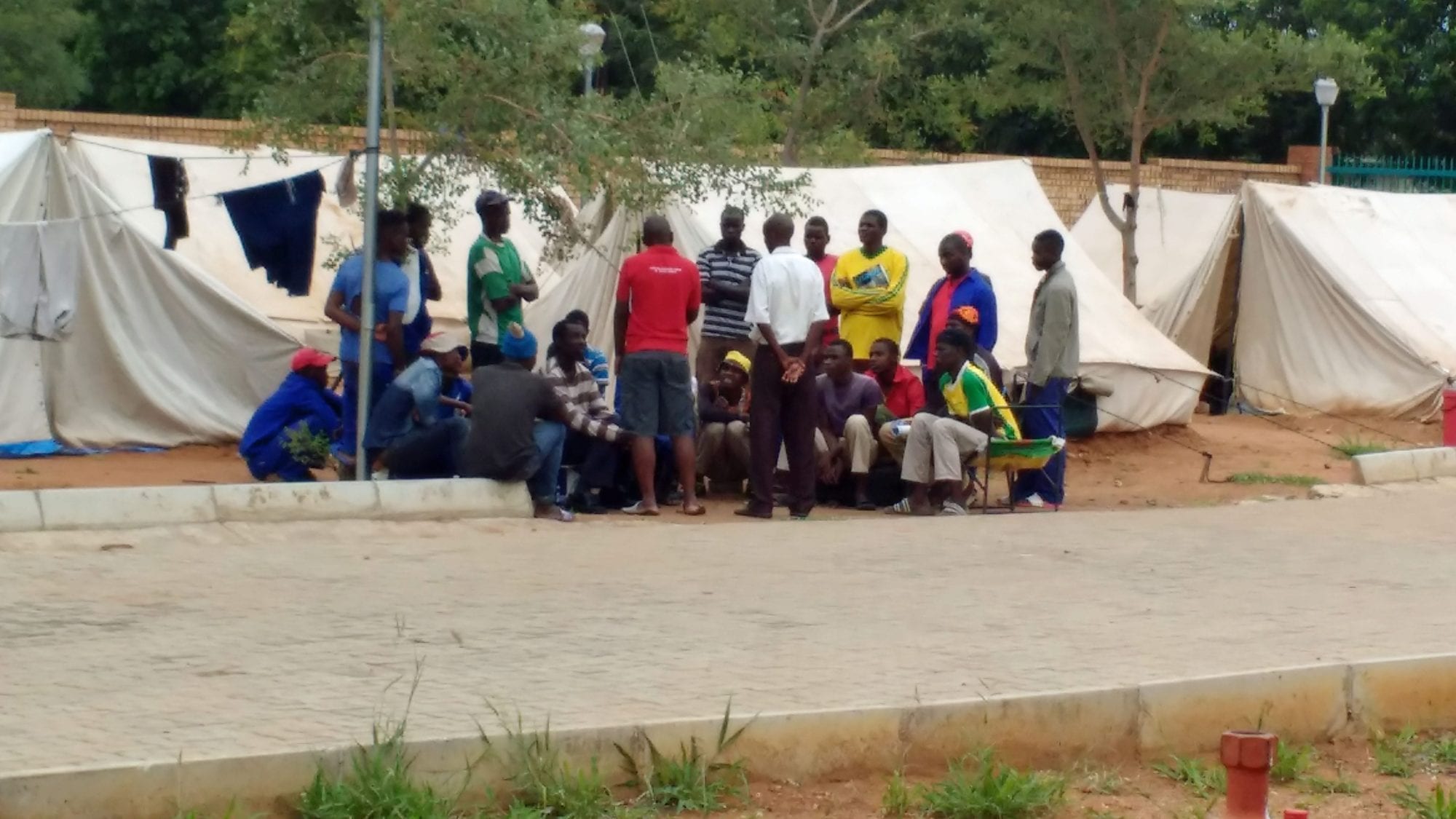Protesting the Zimbabwe government’s failure to pay civil servant salaries and outraged over a new law targeting market vendors who make up the vast proportion of the workforce, working people across Zimbabwe waged a successful one-day shut-down of businesses,...

In Zimbabwe, the Solidarity Center supports training to educate and mobilize working women, who comprise the majority of economically-struggling workers in the informal sector. Credit: Solidarity Center/Jemal Countess
Zimbabwe Migrant Farm Workers See Dawn of Justice
Some of the 245 Zimbabwe migrant farm workers brutalized and evicted last September from a large farm in South Africa, where many had toiled for years, have now been vindicated in court. In a recent court hearing in South Africa, a judge rejected the farm owner’s...
70 Migrant Farm Workers Fled Abuse in South Africa
In Lephalale, South Africa, a coal mining town near the Botswana border, more than 70 farm workers, including 19 women, are crowded into a handful of tents in a disaster relief center after fleeing the commercial farm owner who shut off water and electricity in their...



